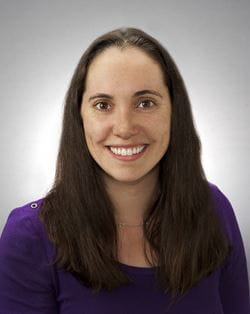
2/14/2024
PITTSBURGH – It was a last-ditch effort. For years doctors had tried to keep a patient’s recurrent drug-resistant bacterial blood infection at bay, but it kept coming back and antibiotics were no longer working.
The family agreed to try an experimental treatment that uses viruses to kill bacteria. The patient’s Enterococcus faecium bacterial strain, which had become zombie-like and was almost impossible to treat with currently available antibiotics, was tested against wastewater collected from across the country to find a virus – called a bacteriophage – that scientists theorized would specifically target the drug-resistant bacteria.
It worked so well the patient was able to leave the hospital for a much-anticipated vacation with her family. The case study by University of Pittsburgh School of Medicine scientists is published today in the American Society for Microbiology journal mBio.
“I was pleasantly surprised, but others on our team were, frankly, shocked at how quickly it worked,” said senior author Daria Van Tyne, Ph.D., assistant professor of infectious diseases at Pitt. “Of course, this is what we wanted, what we hoped for. But the patient’s response was so much better than we expected.”

The case study, which required emergency investigational new drug approval from the U.S. Food and Drug Administration (FDA), is one of only a handful that have used bacteriophage therapy to treat E. faecium infection. The researchers expect the results from this study will inform future use of the therapy.
Bacteriophages – known informally as ‘phages’ – are viruses that target and infect bacteria, killing the bacteria as they replicate. Different phages target different bacteria and can be so selective that they only target a specific strain of a bacterium and won’t infect other bacteria or injure human cells. Phages are abundant and can be found everywhere from water and soil to the human body. Wastewater from sewage treatment plants is a common source researchers use to isolate new phages.
Doctors are increasingly interested in phage therapy when all else fails to fight a deadly bacterial infection. But as the therapy is not currently standardized or approved by the FDA, it is not widely available. Several clinical trials – including at Pitt – are underway to confirm its safety and test its efficacy.
The patient in the case study was a 57-year-old woman who had a complex medical history and an autoimmune condition that required immunosuppression to treat. Along the course of her medical journey, drug-resistant E. faecium colonized her gut and spread to her blood, causing recurrent bloodstream infections that required multiple and prolonged hospitalizations between 2013 and 2020. Finally, in late 2020, after a month-long hospitalization, doctors determined that antibiotics were no longer working and suggested phage therapy.
Scientists at the University of Colorado discovered the phage that targeted her bacterial strain and sent it to Pittsburgh where it was grown and prepared in Van Tyne’s lab and then given to the patient alongside antibiotics.
“Phages attack bacteria in a different way than antibiotics,” said lead author Madison Stellfox, M.D., Ph.D., postdoctoral infectious diseases fellow at Pitt. “We believe that the phage therapy worked in tandem with the antibiotics to help the patient fight the infection.”
Within 24 hours of receiving phage therapy, the patient’s blood infection had resolved and she could go home, where she continued the phage and antibiotic combination. She developed a few short-lived breakthrough infections, which indicated the bacteria was getting around the therapy, so the researchers found an additional phage that targeted her bacteria.
With the addition of the new phage, the patient was blood infection-free for four months and able to travel out of state for a for a family beach vacation.

However, just over six months after starting phage therapy, the blood infection returned, and the phage-antibiotic combination was thought to be no longer effective. The patient died in 2022.
In order to learn why the infections recurred despite the combination being previously effective, laboratory testing revealed that the patient’s immune system had likely activated in a way that blocked the phages from attacking the bacteria. Van Tyne and Stellfox suspect that either the addition of the second phage or the increased dose of the phage combination – or both – had prompted the immune response.
“What we learned from this patient and her allowing us to follow and document her medical journey will help future patients,” said Van Tyne. “Phage therapy could be a powerful tool against the ever-growing threat of antibiotic resistance and the data from her case will help shape clinical trials that could one day make it widely available to patients in need.”
Additional authors on this release are Carolyn Fernandes, M.D., Ryan K. Shields, Pharm.D., M.S., Ghady Haidar, M.D., Kailey Hughes Kramer, Ph.D., and Emily Dembinski, all of Pitt, and Mihnea R. Mangalea, Ph.D., Garima Arya, Ph.D., Gregory S. Canfield, M.D., Ph.D., and Breck A. Duerkop, Ph.D., all of the University of Colorado at the time of the work.
This research was supported by the National Institutes of Health (T32AI138954, R01AI165519, R21AI151363, R01AI141479, T32AR007534 and K23AI154546).
PHOTO DETAILS: (click images for high-res versions)
First Photo
CREDIT: UPMC
CAPTION: Daria Van Tyne, Ph.D.
Second Photo
CREDIT: UPMC
CAPTION: Madison Stellfox, M.D., Ph.D.
















